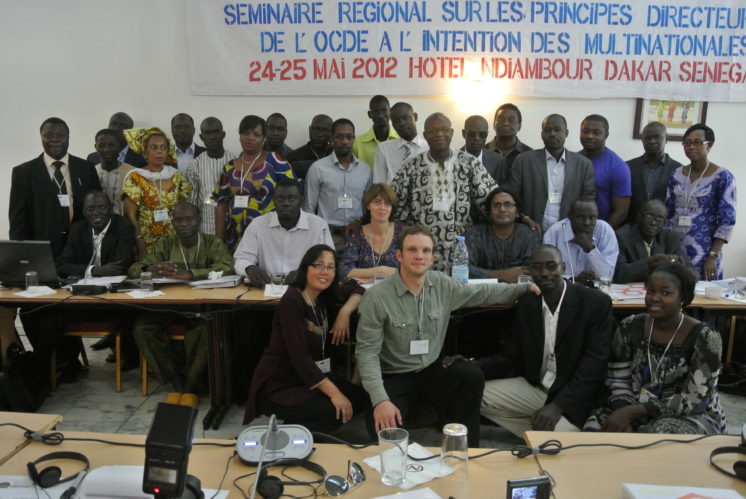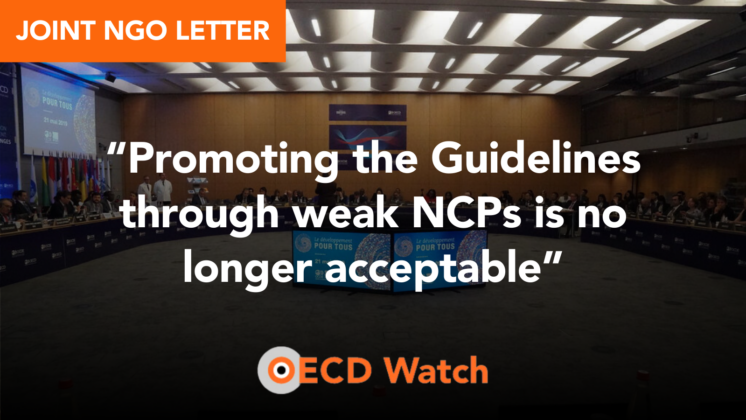OECD Watch and Lumière Synergie Developpement, a Senegalese CSO and member of the Coordination Committee of OECD Watch, have organized a capacity building workshop on May 24 and 25 2012 in Dakar, Senegal to engage with representatives of key NGOs in Senegal and the West African region.
 Photo: OECD Watch hosts capacity building seminar in Senegal
Photo: OECD Watch hosts capacity building seminar in SenegalAlthough many Senegalese CSOs are already working in the field of CSR, but there is limited knowledge about and use of the OECD Guidelines. This capacity building seminar was the second OECD Watch capacity building program in Africa. The main aim of the program was to increase participants’ knowledge of the OECD Guidelines as a corporate accountability mechanisms available to them for holding corporations accountable for irresponsible behavior. Twenty-six representatives from NGOs in ten countries in Africa participated in the program.
At the start of the seminar participants were introduced to a broad background of corporate accountability. Participants furthermore benefited from sharing of experiences, theoretical discussions and debate, and a National Contact Point (NCP) role-play, where hypothetical complaints based on participants’ experiences were developed and presented in a simulation exercise. An important part of the training seminar was facilitating networking. The last session of the seminar focused specifically on generating ideas to maintain contact among participants. Participants valued the existence of OECD Watch and organisations who are already member of the network encourage other organisations to become member of OECD Watch to keep into contact with each other.
Throughout the seminar OECD received a very strong message from the participants, namely that corporate accountability tools, remedies and access to justice should become more relevant for Africa and work should be done to make the OECD Guidelines become more visible in the region. OECD Watch is committed to remain available as a resource for participants and provide help and advice for those who are considering filing an OECD Guidelines complaint. Moreover, OECD Watch will continue to reach out to the region and seek for opportunities to make the OECD Guidelines more relevant for the local situation of organisations in Africa.













